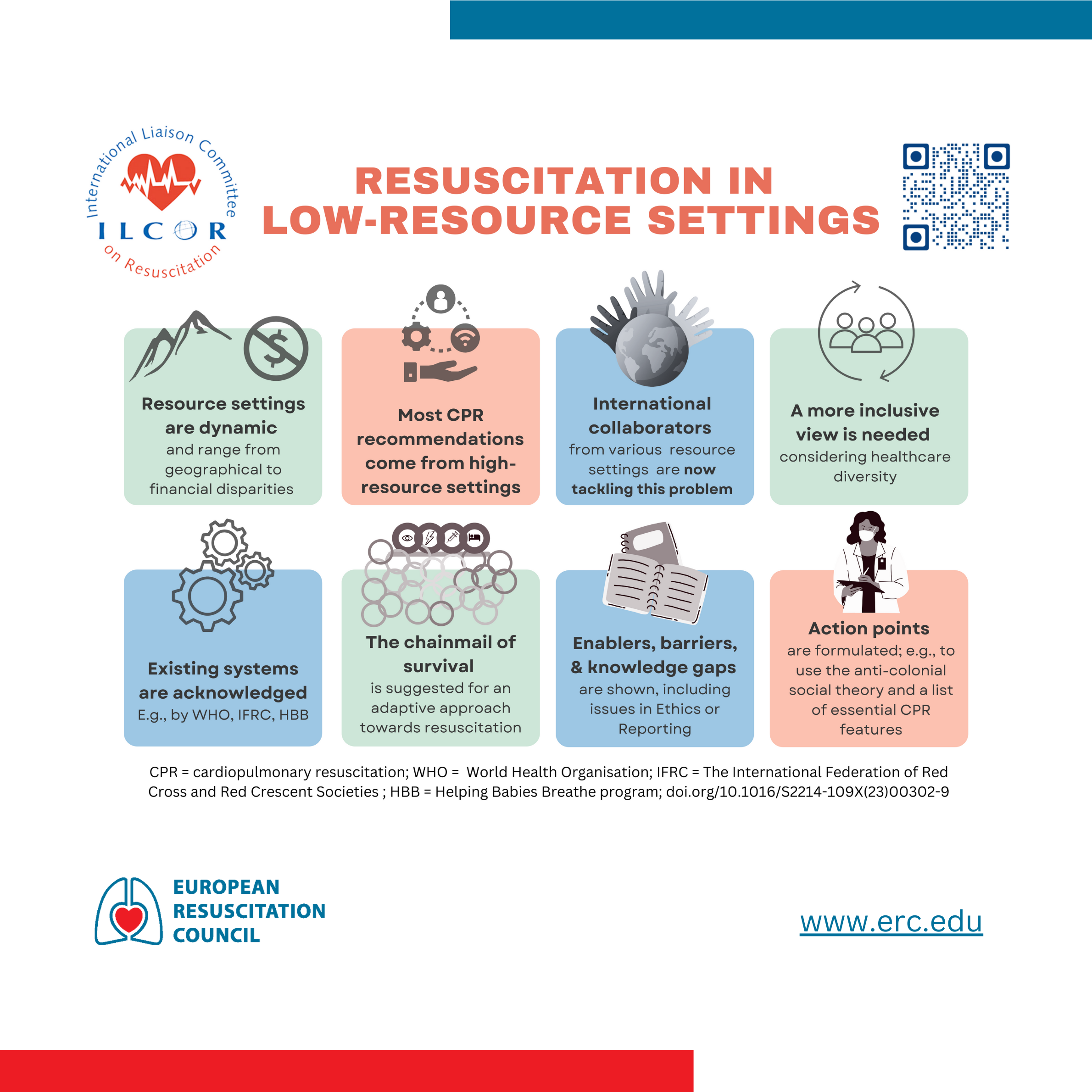
Media Release: Cardiopulmonary resuscitation in low-resource settings
The International Liaison Committee on Resuscitation (ILCOR) has released a statement, supported by the African Federation for Emergency Medicine (AFEM), the European Society for Emergency Medicine (EUSEM), the International Federation for Emergency Medicine (IFEM), and the International Federation of Red Cross and Red Crescent Societies (IFRC). Lead authors are also affiliated with the ERC.
Survival rates after cardiopulmonary resuscitation (CPR) rise internationally due to improved care and standardized treatment algorithms, but data are very heterogenic. Respective guidelines (as those by the ERC) are based on the regularly updated consensus on science with treatment recommendations (CoSTR) by the International Liaison Committee on Resuscitation (ILCOR). However, these CoSTR have been developed from the perspective of a high-resource setting and have been aimed to be applied there. Whereas these recommendations and following guidelines may then be applicable to most parts of Europe, the bespoke underlying high-resource settings cannot be found everywhere. Resource situations vary internationally, and even high-resource countries may have areas where resuscitation resources are limited.
ILCOR has now acknowledged that up until 2023, CPR recommendations have indeed not been inclusive of large parts of the world, and that guidance cannot be one-size fits all. A collaboration collaborative group of experts from various low-, middle-, and high resource settings have now formulated enablers and barriers towards resuscitation in low-resource settings-, as well as first action points.
Prof. Koen Monsieurs (ERC Chair): "The European Resuscitation Council congratulates ILCOR for taking the brave step to acknowledge the need to develop truly international CPR guidelines. The statement heralds a new approach to CPR guidelines: more inclusive and applicable to both low and high resources settings. This ILCOR statement aligns perfectly with the vision of the ERC to become more diverse and inclusive. The 2025 ERC Guidelines will reflect the spirit of this ILCOR statement."
Prof. Robert Greif (ERC Director Guidelines & ILCOR): "The growing awareness about diversity, equity, and inclusion sparked ILCOR to issue a first statement on resuscitation in lower resource settings. As international resuscitation guidelines have been made from the point of view of higher resource settings (and mostly for such settings), this is an important step to attain the vision of ILCOR: Saving more lives globally through resuscitation. That move needs to impact future development of resuscitation guidelines."
Dr. Sebastian Schnaubelt (Statement Lead): "Global recommendations on any medical topic need to be mindful of the huge variety of regional, national, and international differences in terms of culture, resources, and priorities. On the other hand, there are many things connecting us – for instance the joint goal of saving lives. Through this fantastic collaboration of experts from all kinds of resource settings, ILCOR has acknowledged the importance of this issue and strives for more inclusiveness. This statement is just a first steppingstone, stay tuned for more to come!"
You can find the full open access statement here: The Lancet Global Health
Correspondence to: Sebastian Schnaubelt, MD, PhD at [email protected].